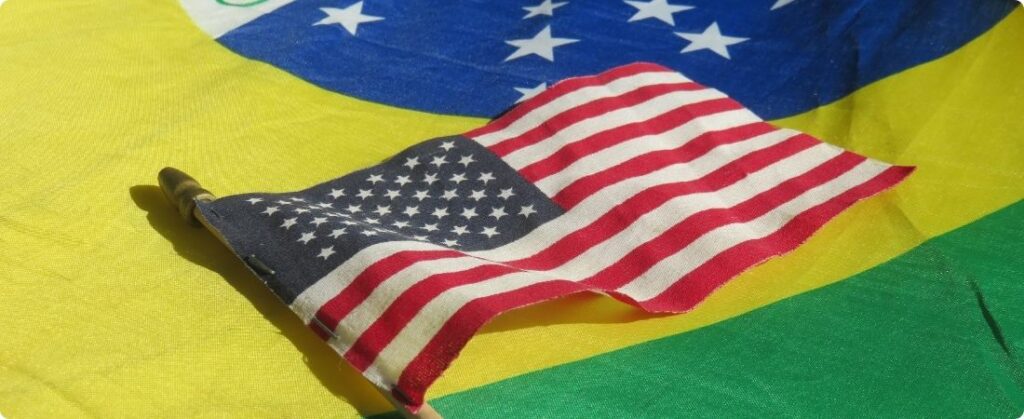
The Brazilian government will not immediately retaliate against U.S following the US government's decision to go ahead with additional tariffs on steel and aluminum this Wednesday, said Finance Minister Fernando Haddad, highlighting that President Luiz Inácio Lula da Silva asked for calm in analyzing the issue.
“We will not proceed like this (with immediate retaliation) on the instructions of the President of the Republic,” said Haddad in an interview with journalists after receiving representatives from Aço Brasil, the entity that brings together the Brazilian steel sector.
“President Lula said, ‘Look, stay calm at this time.’ We have negotiated before, even under much more unfavorable conditions than this,” he added.
The Brazilian government managed to open a channel of negotiation with the Americans after a series of talks held last week. Vice President and Minister of Development, Industry, Trade and Services Geraldo Alckmin spoke with US Secretary of Commerce Howard Lutnick. In addition, Foreign Minister Mauro Vieira also met with US Trade Representative Jamieson Green.
Sources heard by Reuters recalled, however, that a first technical meeting between Brazil and the United States has not yet taken place, virtually.
Ongoing negotiations and expectations of the Brazilian government
In an interview with journalists, the Minister of the Civil House, Rui Costa, said that the meeting on the subject between the two governments is scheduled for Friday, highlighting that Lula will only make a decision after the meeting.
“There is a meeting on Friday between Alckmin and representatives of the US government to discuss this issue. The president decided to only take a position or take a measure after this meeting, believing that he can reach an understanding,” he said.
One of the sources highlighted that the US government has already stated that it will announce new tariffs on other sectors on April 2 and specifically mentioned Brazil in two products: ethanol and wood.
There are concerns about the impact that these new tariffs could have on Brazil. Information released by the White House indicates that the US government is planning a single tariff for each country that applies tariffs against the US. If this measure is adopted, bilateral trade could be affected as a whole, and not just a specific sector.
“The best option is always to negotiate. If you retaliate immediately, you could further harm Brazilian industry,” one of the sources said. “Especially if we consider that new measures may be coming.”
A decision on retaliation, the source said, should only come after all alternatives have been exhausted, and should involve not only the executive branch, but also the sectors to be affected and Congress. “It needs to be a joint decision, if only to show that we tried everything possible,” he said.
Attempts to postpone the application of tariffs and the international context
In the negotiations, the Brazilian government wants to show that Brazil is not the only country with a deficit in bilateral trade with the United States. In addition, the government intends to highlight that it applies an average tariff of 2.75%, a value lower than the average of 3.5% imposed by the United States on the country.
“It’s even a bad example to impose tariffs on a country with which you have a surplus. What incentive will those with whom the US has a deficit have to change?” said another source involved in the negotiations.
The Brazilian government has asked to postpone the start of the tariff on the country. Lutnick and Green have promised to take this request to US President Donald Trump. The government also intends to try to maintain the current tariff-free export quotas for steel in the negotiations.
On Wednesday, a tariff increase imposed by Trump took effect, raising the rate to 25% on all US steel and aluminum imports. The measure comes after the expiration of previous exemptions, which included duty-free quotas and product exclusions.
Brazil is the second largest exporter of steel to the United States, behind only Canada.
Source: Marcela Ayres, Lisandra Paraguassu and Bernardo Caram | Notícias Agrícolas












